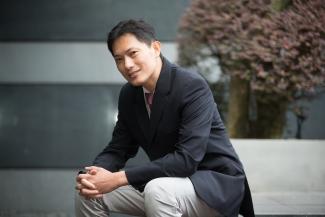
When NTUC Health Co-operative Ltd (NTUC Health) realised that its manual system for recording data was hampering the effectiveness of its community programmes for seniors, and important information that they wanted to develop new programmes with also could not be easily analysed, they decided to collaborate with Singapore Management University (SMU) to use smart technology to overcome these challenges.
NTUC Health, one of the largest health and eldercare providers in Singapore, offers active ageing, senior day care, home care and nursing home services.
In addition, they support vulnerable seniors in the community through senior activity centres and programmes such as the Community Befriending Programme that deploys volunteers to visit vulnerable seniors, as well as the Cluster Support Programme where its social workers ensure that such seniors receive the support they need.
Its manual processes of record keeping meant that resources were not being put to their most productive use.
At its centres, for instance, records of attendance for each activity were tracked manually on paper, and transferred to Excel spreadsheets for reporting.
Home visit details and information on the seniors’ health and wellness were also manually recorded on paper which the seniors needed to sign off.
This was very time consuming and can sometimes result in recording errors.
SMU worked together with NTUC Health on a digital data collection process to allow for easier analysis, which is valuable in understanding the seniors’ physical, emotional and mental improvement or decline; and in determining whether the activity participation or befriending support is appropriate for the seniors.
One of the solutions proposed involves providing Bluetooth Low Energy (BLE) beacons to the seniors.
By connecting the beacons to the BLE receivers located at each centre, the receivers are able to accurately record the time instances when each senior’s beacon is in proximity for attendance-taking.
Another solution involves deploying BLE beacons at the homes of the seniors. The data from the beacons are captured by mobile applications and sent to a cloud server.
Staff will be able to view the details on the system which include live and historical attendance data, and validation of home visits.
“Our solutions will improve the efficiency and accuracy of data collection, allow real-time views, as well as analytics to be performed. In this way, staff and befrienders can channel time previously spent on manual recording processes to engage and care for the seniors,” said Associate Professor Tan Hwee Pink from SMU’s School of Information Systems, who is leading the project with NTUC Health.
Each solution begins with the gathering of requirements, both from management and the ground, followed by real user testing with a few centres or homes, and subsequent refinements before full-scale roll-out.
Generating valuable insights
“The technology addresses a big administrative pain point and also improves our understanding of seniors’ preferences and needs.
The evidence-based approach also helps us make better decisions on how we design our programmes for seniors’ health and well-being,” said Ms Jeannie Ho, Director, Senior Cluster Network of NTUC Health.
Preliminary results based on data collected from the first two centres where the digital collection systems have been deployed are already yielding valuable insights.
For instance, early results seem to suggest that seniors’ attendance fall within several distinct clusters, with a significant proportion averaging a daily attendance of about 30 minutes. Based on this finding, programmes could be tailored to better suit seniors in these clusters.
For this two-year initiative with NTUC Health, Prof Tan and his team leveraged their extensive ground experience in developing and deploying senior-centric technologies from previous research projects at SMU, which also involved developing systems for staff from caregiving organisations to carry out actions based on objective data.
“The experience from these earlier research projects emphasised to us the importance of the usability of technology. Simply put, technology will more likely be adopted if it does not require a change in routines for seniors, or if it complements instead of burdens the caregiver,” explained Prof Tan.
Looking ahead, SMU plans to have conversations with key stakeholders involved in the project on post-project support for the solutions developed, explore possible extensions of the technologies to meet the needs of other business units with NTUC Health, as well as other eldercare service providers.